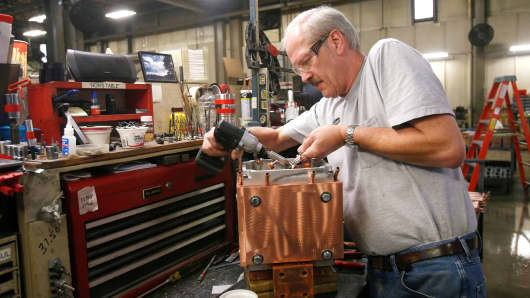February's job growth slowed to a crawl with just 20,000 payrolls added, but it is more the result of temporarily sluggish growth and not a sign of recession.
The shockingly weak report was about 160,000 fewer jobs than economists had forecast, but it follows January's surprisingly strong 311,000 payrolls, which were revised higher by 7,000 workers. The unemployment rate also fell by 0.2 percentage point to 3.8 percent and average hourly wages grew at an annual pace of 3.4 percent.
"I don't think there's a recession on the horizon. However, the market has to grapple with a slowing economy against the backdrop of a much weaker global environment and therefore questions about the U.S. ability to remain decoupled from the rest of the world will persist," said Joseph LaVorgna, chief economist for the Americas at Natixis.
Economists were quick to point to the fact that the government data has been inconsistent since the government shutdown and may have been affected by both the 35-day shutdown and a temporary work furlough for government employees and private sector contractors. White House economic advisor Larry Kudlow called the number "fluky" in an interview on CNBC's "Squawk on the Street."
"Right now, we're still waiting to get enough consistent data so we can assess what's going on. At this point, these numbers don't do that," said Ward McCarthy, chief financial economist at Jefferies. "In some respect, it's not dissimilar to the December retail sales numbers that were so weak they weren't believable."
The delayed January retail sales report is scheduled to be released Monday, and economists are watching to see if there is a revision to December's 1.2 percent decline.
"We had the teacher's strike, and government employment had a hard time ramping back up so that pulled a lot of things down. There's a lot of noise in the payroll data," said Diane Swonk, chief economist at Grant Thornton.





